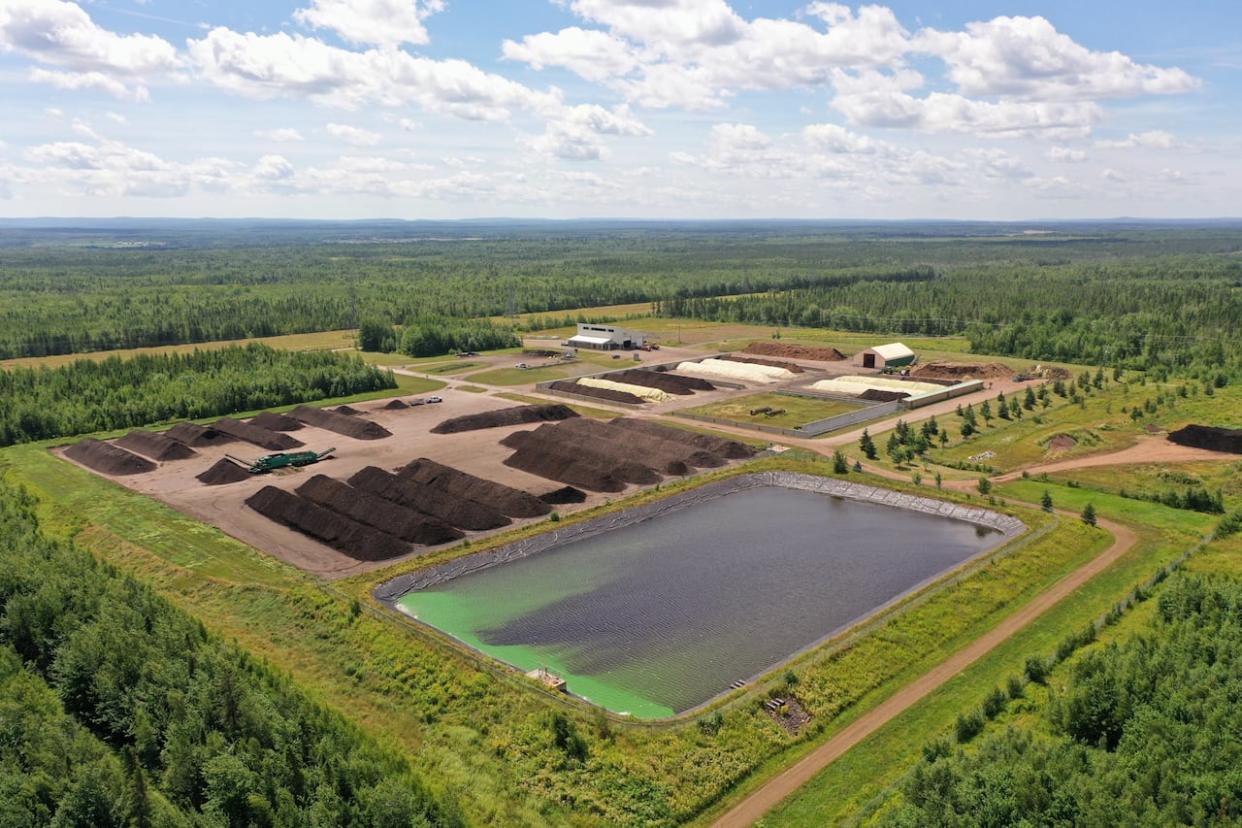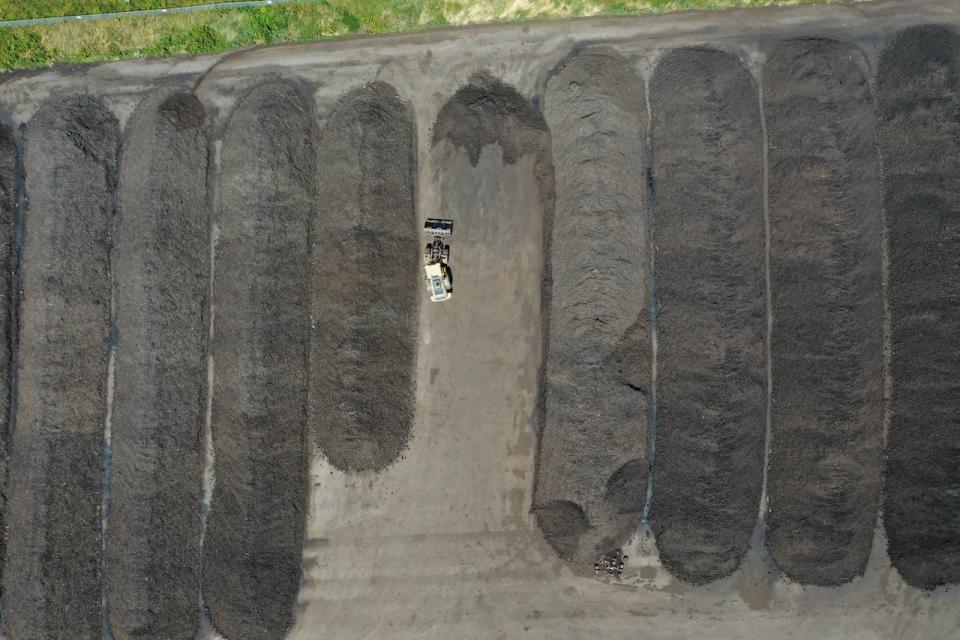TransAqua to Moncton: Pay for studies to address north end smell

TransAqua says Moncton should pay for any studies stemming from council's call for major changes at the utility's sewage composting site.
The utility that processes wastewater from Moncton, Dieppe and Riverview uses sewage "biosolids" to produce compost at a site in Moncton's north end. Council voted Feb. 5 to insist TransAqua enclose the site in a new building with air filters, or relocate outside the city.
Now, TransAqua has responded. Interim board chair Nicolas Cormier, in a Feb. 28 letter to the city and provided to CBC on Thursday, puts the onus back on the city.
"Given that TransAqua is within its approval to operate and following the odour control plan approved by our regulators, and that the work being requested by the City of Moncton is an unplanned and unbudgeted item, we respectfully request that the exploration of the options requested in the motion be borne by the City of Moncton," the letter says.

Piles of material at TransAqua's composting site in 2022. (Shane Fowler/CBC)
It's a response one of the councillors who represents the area describes as disappointing.
"The residents of Ward 3 continue to experience poor quality of life due to a daily putrid human waste stench," Coun. Dave Steeve said in an emailed statement Friday.
"I receive complaints every day. Our disappointment with TransAqua's response to the City's unanimous motion continues."
Coun. Bryan Butler, another north end councillor who has been vocal on the issue, was unavailable for comment Friday. Butler said in February that residents want the smell to end and were tired of meetings, studies and delays.
The city's motion was discussed at a TransAqua board meeting last month that led to a vote to meet with provincial regulators.
That meeting took place Feb. 22.
Clarissa Andersen, a spokesperson for the province's Department of Environment and Local Government, said Friday that the discussion led to recommending TransAqua work with the three municipalities "to further explore additional long-term options for the management of their facility."
TransAqua's letter was also sent to Dieppe and Riverview mayors, as well as the region's MLAs "so that they are aware that TransAqua may undertake a large capital project as a result of the symbolic motion passed by the City of Moncton."
TransAqua is funded through charges on utility bills in the three municipalities.
The letter's description of the motion as "symbolic" appears to refer to how Moncton staff have said the city council doesn't have the legal authority to direct the utility's board.
TransAqua is a corporate entity established by the province, though its board members are appointed by the councils of the three communities.
TransAqua has repeatedly said it is in compliance with its provincial operating approval but has made various changes to reduce smells.
That includes purchasing more covers for the piles of composting material, avoiding uncovering piles while wind is blowing toward homes, using lime.
TransAqua also began operating a second composting site in the newly created community of Five Rivers in 2023 to handle excess from its Moncton site.

